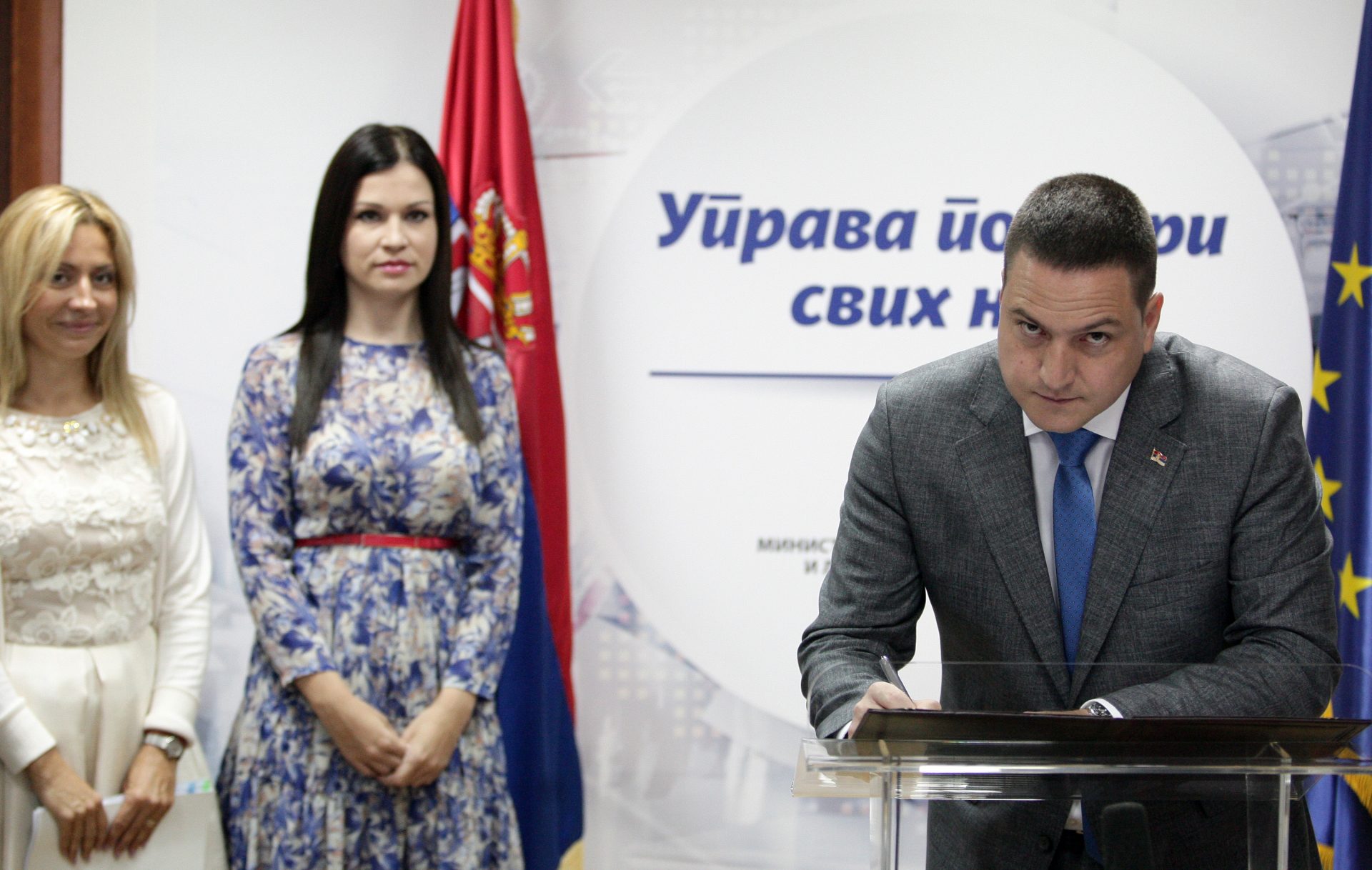
Minister of Public Administration and Local Self-Government Branko Ružić called today elections for national councils of national minorities for 4 November. Members for national councils in 2018 are elected by 22 minority communities, of which 18 national minorities complied with requirements for direct elections (Albanian, Ashkali, Bosniak, Bulgarian, Bačka Croatian, Vlach, Greek, Egyptian, Hungarian, German, Polish, Roma, Romanian, Ruthenian, Slovak, Slovenian, Ukrainian, Czech) and four for elections through an electronic assembly (Macedonian , Croatian, Montenegrin and Russian). The deadline for submission of lists for direct elections is 15 days before the date when direct elections are held, or 30 days before elections through an electronic assembly are held.
 “After four years we call regular elections for national councils as bodies which are very important to preserve tradition, culture and use of languages and scripts. According to the data of 15 August, almost 475,000 of our citizens have been registered with the special electoral roll”, Mr. Ružić said. The Minister called again all members of national minorities living in Serbia to use their eligibility to vote and register with the special electoral roll. Mr. Ružić said that international institutions commended the Ministry for Public Administration and Local Self-Government for those laws. “In the previous period we worked in synergy with national councils of national minorities to find the best solutions for exercising of their rights. Our country is now a good and internationally acclaimed model of a country which improved human and minority rights, compliant with the highest international standards. We should be very proud of that fact, as well as of the fact that 13% of the Serbian population are members of national minorities“, emphasized the Minister.
“After four years we call regular elections for national councils as bodies which are very important to preserve tradition, culture and use of languages and scripts. According to the data of 15 August, almost 475,000 of our citizens have been registered with the special electoral roll”, Mr. Ružić said. The Minister called again all members of national minorities living in Serbia to use their eligibility to vote and register with the special electoral roll. Mr. Ružić said that international institutions commended the Ministry for Public Administration and Local Self-Government for those laws. “In the previous period we worked in synergy with national councils of national minorities to find the best solutions for exercising of their rights. Our country is now a good and internationally acclaimed model of a country which improved human and minority rights, compliant with the highest international standards. We should be very proud of that fact, as well as of the fact that 13% of the Serbian population are members of national minorities“, emphasized the Minister.
Regular elections for members of national councils of national minorities are held every four years. National councils have minimum 15 and maximum 35 members. In case of national minorities with less than 10,000 members according to the most recent census, national councils have 15 members, while national councils with more than 100,000 members have national councils with 35 members. Councils can also have 19, 23 or 29 members, depending of the results of the census.



